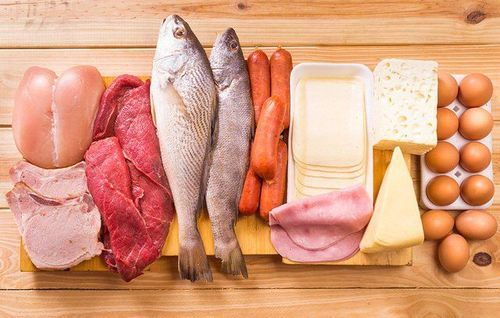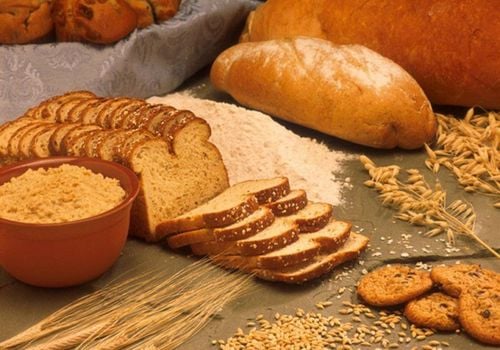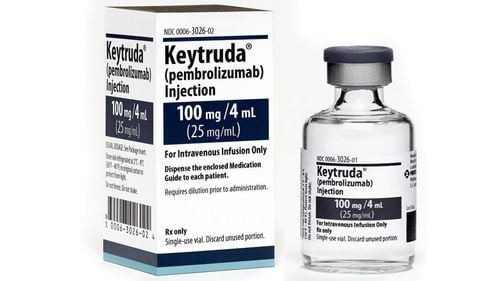This is an automatically translated article.
Posted by Dr. Pham Thi Viet Huong - Doctor of Hematology - Oncology - Hematology and Cell Therapy Unit - Center for Regenerative Medicine and Cell Therapy, Vinmec International General Hospital Times CityMacrobiotic diet is a new diet emerging in Vietnam and other countries in recent years, many people believe that this diet can treat cancer. So what is the truth about the macrobiotic diet and should it be maintained?
1. Macrobiotics have never been a cure for cancer
The macrobiotic diet (English: macrobiotic, from Greek μακρός "large" and βίος "life") is a pescetarian diet (i.e., eating seafood, vegetables, eggs, and eggs) vegetarian or vegan) in a fixed way based on ideas about foods drawn from Zen Buddhism [1]. This diet tries to balance the yin and yang elements of food and cookware. The main principles of a macrobiotic diet are to reduce animal products, eat locally grown foods that are in season, and consume meals in moderation. The point of convergence of philosophy and practice lies mainly in food and eating [1].Currently, there is NO clinical evidence of high research value that a macrobiotic diet is helpful for people with cancer or other diseases, and that it can be harmful [1] , [2]. Both the American Cancer Society and Cancer Research of the United Kingdom advise NOT to adopt this diet [3][4].
The American Cancer Society recommends a "low-fat, high-fiber diet consisting mainly of plant products". However, they urge people with cancer not to rely on the dietary program as the sole or main treatment [4] Cancer Research UK states: "There is no scientific evidence There is no evidence that a macrobiotic diet can treat or cure cancer or any other disease" [3].
Trắc nghiệm: Thử hiểu biết của bạn về bệnh ung thư
Ung thư là nguyên nhân gây tử vong hàng thứ 2 trên thế giới. Thử sức cùng bài trắc nghiệm sau đây sẽ giúp bạn có thêm kiến thức về yếu tố nguy cơ cũng như cách phòng ngừa bệnh ung thư.
Bài dịch từ: webmd.com
2. Complications of a macrobiotic diet
Complications of a macrobiotic diet are as follows:Children: Children can also experience nutritional deficiencies due to a macrobiotic diet [4]. Pregnant women: Macrobiotic diets have not been tested or tested in pregnant or lactating women and the worst-case scenario are insufficient nutrients needed for normal fetal development. fetus, essential for maternal health during and after pregnancy [4]. One of the earlier versions of a macrobiotic diet that involved eating only brown rice and drinking water has been linked to severe nutritional deficiencies and even death. Strict macrobiotic diets in which no animal products are eaten can lead to nutritional deficiencies, unless they are carefully planned in advance. The danger may be worse for people with cancer, who may face unwanted weight loss and often have increased nutritional and calorie needs. Relying on macrobiotics as the only treatment and avoiding or delaying routine medical care according to doctors for cancer patients can have serious health consequences, ignoring the timing. gold to save the lives of cancer patients [4].

Please dial HOTLINE for more information or register for an appointment HERE. Download MyVinmec app to make appointments faster and to manage your bookings easily.
Lerman RH (December 7, 2010). "The Macrobiotic Diet in Chronic Disease". Nutrition in Clinical Practice 25 (6): 621–626. Hübner J, Marienfeld S, Abbenhardt C, Ulrich CM, Löser C (November 2012). “[How useful are diets against cancer?]”. Deutsche Medizinische Wochenschrift (Review) (in German) 137 (47): 2417–22. PMID 23152069. Macrobiotic diet”. Cancer Research UK. Retrieved November 9, 2019. Russell J; Rovere A ed. (2009). "Macrobiotic Diet". American Cancer Society Complete Guide to Complementary and Alternative Cancer Therapies (2nd edition). American Cancer Society. p. 638–642.












